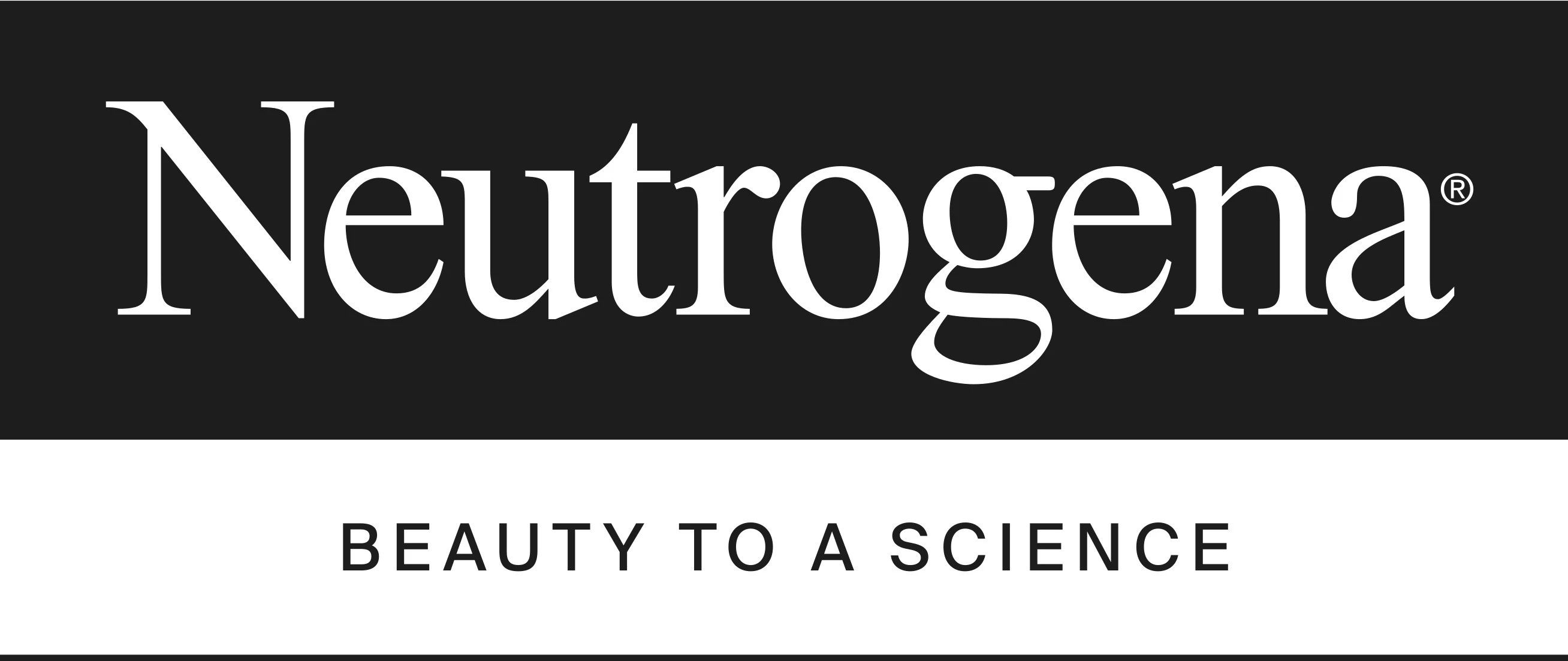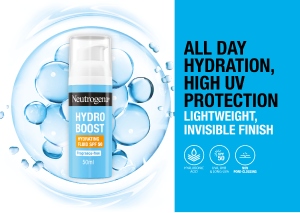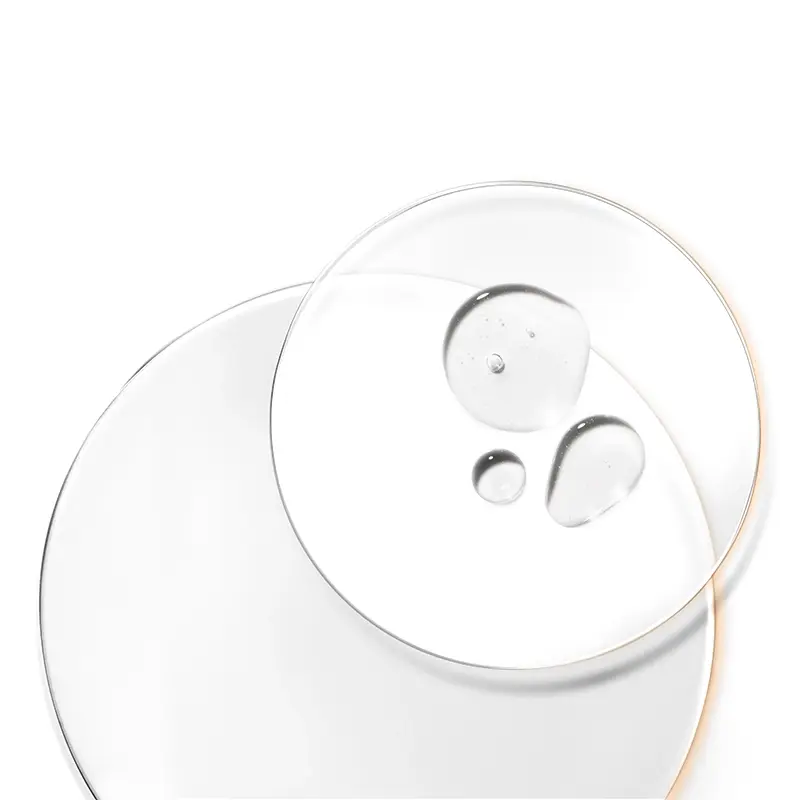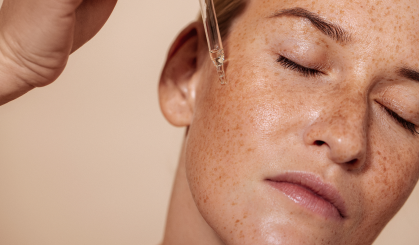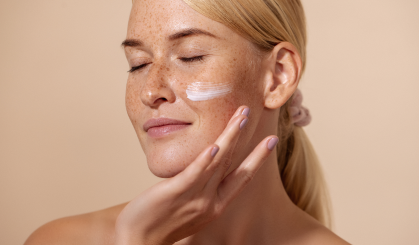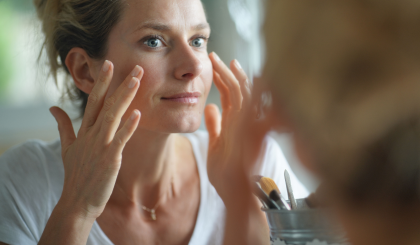AHA stands for alpha hydroxy acid. Hydroxy acids are a type of non-organic acids that have long been used in skincare products for their well-known anti-ageing properties and various other skin benefits.
Looking for a new anti-aging product or simply want to improve your skin? An AHA could help. Here, we’ll cover what AHAs are, how they’re used in skincare, their benefits, and the type of AHA products available.
In this guide:
What does AHA mean?
AHA means alpha hydroxy acid. AHAs, along with BHAs (beta hydroxy acids), are two of the main types of hydroxy acids – a type of non-organic acid – used in beauty and skincare. Also known as fruit acids, they have been used as an ingredient in products to help improve the appearance and hydration of skin for decades.
AHA works as a chemical exfoliant, helping to remove dead cells from the top layer of the skin. This can help to smooth fine lines, improve skin texture, and decrease blemishes. Clinical trials have shown that AHAs are effective in reversing the effects of photoaging and improving the appearance of fine lines and wrinkles, skin elasticity, tone, and hydration. As such, AHAs are widely used for their anti-ageing benefits, reducing the appearance of dark spots, and for their benefits for spot and acne-prone skin
How do AHAs work?
AHAs work by acting on the epidermal level of the skin. Once applied to the skin, they stimulate the exfoliation of epidermal skin cells, resulting in the removal of dull and rough skin to promote skin renewal.
What AHAs are there?
There are a number of different AHAs used in skincare products. Look out for the following ingredients listed on the pack:
Glycolic acid
Lactic acid
Citric acid
Hydroxycaprylic acid
Hydroxycapric acid
Mandelic acid.
Within the NEUTROGENA® Clear & Defend+ range, the Liquid Exfoliant, Facial Wash, and Daily Serum contain glycolic acid and either citric acid or mandelic acid to increase surface skin cell renewal to refine skin texture and help fade acne marks.
Benefits of using AHAs
Due to their ability to exfoliate or slough off dead skin cells and promote cell renewal, there are many benefits of using AHA skincare products. For example, products with AHAs may:
Help improve the signs of ageing, such as fine lines and wrinkles.
Reduce skin discolouration and age spots.
Reduce the appearance of enlarged pores.
Improve skin texture and radiance.
Reduce blemishes and help fade marks left by spots and acne.
AHA products can also help to improve skin texture and radiance, as well as reduce skin imperfections thanks to its ability to slough off rough skin and promote cell renewal.
Using AHA in your skincare routine
If you want to add AHA into your skincare routine, it’s usually best to start with a product that has a low concentration. This can help to prevent skin irritation. You should also give your skin time to adjust to the product. Start by using AHA skin products like NEUTROGENA® Clear & Defend+ Liquid Exfoliant with AHA + Panthenol weekly or every other day, as instructed on the packaging, then gradually work up to daily application if needed.
Despite having many benefits, AHA products do have some potential side effects, such as redness and irritation of the skin. These should be temporary until skin becomes tolerant, but may be severe enough to stop using, so start by only applying a small amount of product first to help protect against this.
Always follow the instructions when using a home chemical exfoliation product and never use more than advised. While a mild AHA exfoliant may be suitable for those with sensitive, dry, or spot-prone skin , you should always avoid exfoliating areas of skin that have sunburns or open cuts or wounds.
Top tips for using AHA skincare products
If you decide to add AHAs to your skincare routine, you can safely do so following the steps below to help protect your skin against side effects:
Use a small amount of the product on a small area of your skin first. If you have a reaction, stop using it.
Closely follow the product’s instructions and don’t use more than recommended.
Apply moisturiser after using to help prevent dryness.
Use a broad-spectrum sunscreen with at least SPF 30 daily, as AHAs have the potential to make skin more sensitive to the sun.
Can you use AHA and BHA together?
AHAs and BHAs are types of hydroxy acids used in skincare products with the prime function to exfoliate the skin.
AHAs are water-soluble acids made from sugary fruits. They help remove the outer dead layer of your skin so that new, more evenly pigmented skin cells may generate and take their place, resulting in a smoother, more even skin tone.
On the other hand, BHAs are oil-soluble and can get deeper into the pores to remove dead skin cells and excess sebum, resulting in clearer looking skin. The main BHA used in skincare products is salicylic acid.
Since their action is different, skincare products often combine both AHAs and BHAs, particularly for products targeting rough, blemished, oily, and spot-prone skin.
NEUTROGENA® Clear & Defend+ Facial Wash and Daily Serum both contain AHAs and salicylic acid to increase surface skin renewal to refine skin texture and to help clear pores.
AHA FAQs
Is salicylic acid an AHA?
No, salicylic acid is in fact the most common BHA. It’s oil-soluble and able to penetrate into the pores to remove dead skin cells and excess sebum. It’s therefore often used to help clear skin and prevent spots.
Can you use AHA and retinol together?
Yes, AHA and retinol can be used together to treat certain skin conditions, such as hyperpigmentation caused by acne. However, whether it’s suitable for you will depend on your skin sensitivity and the specific product. It’s generally advised not to use the two ingredients at the exact same time, particularly if you have sensitive skin, as this can cause dryness and irritation.
Can you use AHA and vitamin C together?
Vitamin C can be paired with AHA. However, those with a sensitivity to active ingredients may experience skin irritation as a result.
